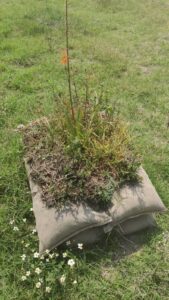 Tlaxcala is facing long-term water source degradation due to institutional neglect and public disengagement in preservation and sanitation efforts. Attention has primarily focused on the Zahuapan River’s surface water contamination, but it’s crucial to address the entire basin. Pollution affects not just surface waters like rivers, streams, and lagoons, but also groundwater.
Tlaxcala is facing long-term water source degradation due to institutional neglect and public disengagement in preservation and sanitation efforts. Attention has primarily focused on the Zahuapan River’s surface water contamination, but it’s crucial to address the entire basin. Pollution affects not just surface waters like rivers, streams, and lagoons, but also groundwater.
Urgent action, combining community and individual efforts, is necessary to mitigate the severe impact on human health and ecosystems. A comprehensive approach involves understanding the cultural relationship local communities have with water. In Tlaxcala’s Tlaxco municipality, integrating local practices and knowledge with the efforts of researchers and scientists is key. Solutions include rainwater harvesting, conserving forest soil water capture, reintroducing vegetation, and utilizing gray water.
Experiences from upper basin research and interventions can be replicated in the middle and lower basins. This approach seeks to foster community participation, apply scientific knowledge socially, and focus on preserving water and environmental resources through a cultural lens.
